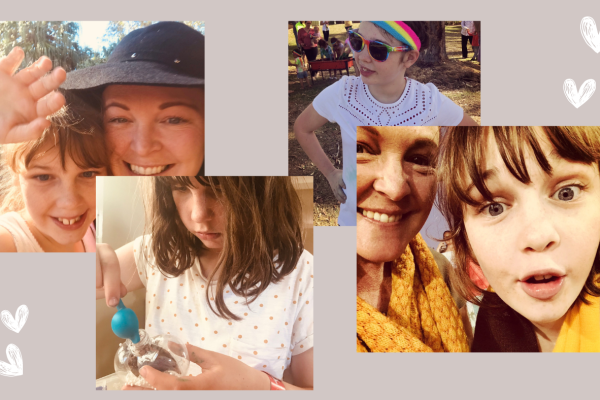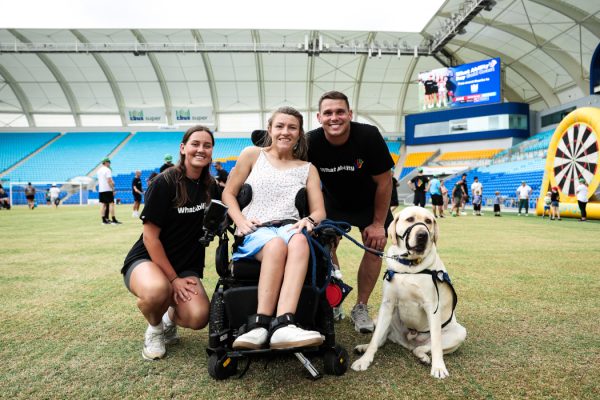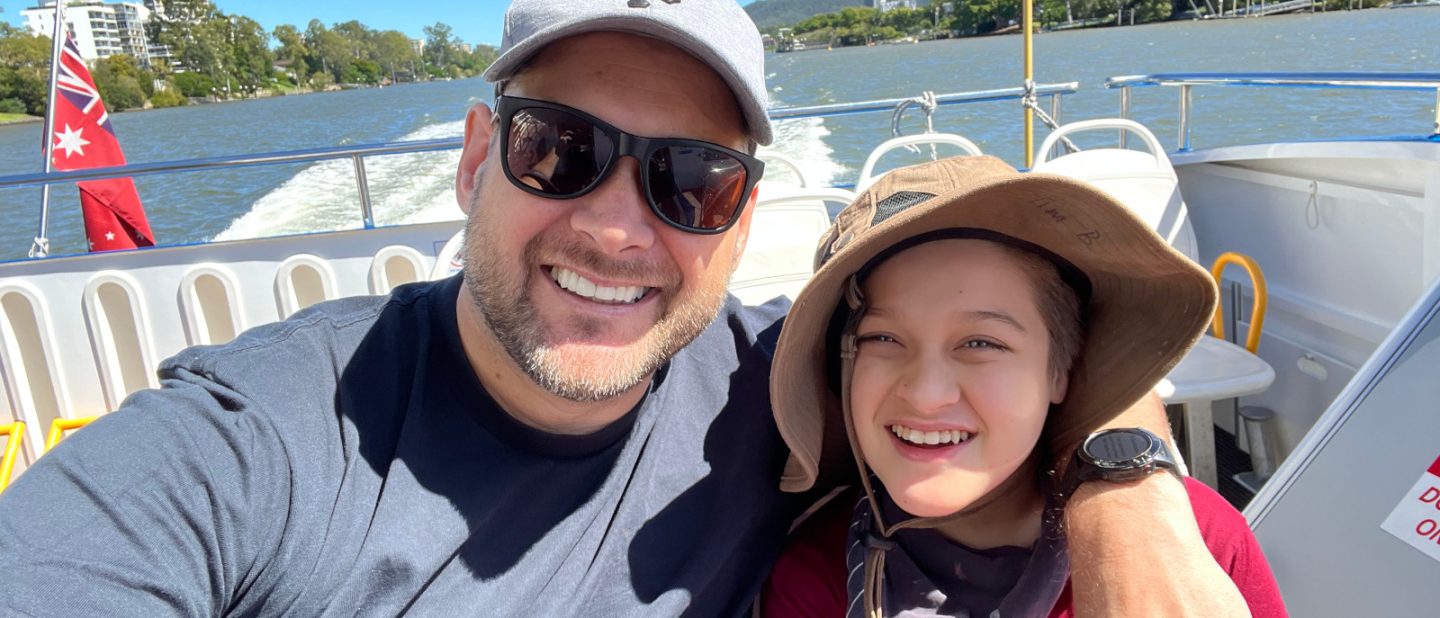
Our story: life with Tim
How did you first become aware that there might be a concern about Tim’s health or development?
Tim was very sick at 2 weeks old with a bowel infection. At 4 months old, he was considered failure to thrive. At 13 months old, he had surgery for strabismus (where both eyes turned out). He was my second child and I noticed he was delayed in all areas, but I thought it was his rough start to life and he just needed to catch up. Then I noticed he never babbled or made any cooing noises but was constantly happy and smiling.
It wasn’t until we had a visit from a friend who was a physiotherapist and worked with kids with disabilities, who was brave enough to suggest that Tim might have Angelman syndrome. That led us to seek genetic testing and we received the diagnosis at 18 months old.
Can you tell us a bit more about the diagnosis?
Tim has Angelman syndrome, which is a deletion of the UBE3a gene on chromosome 15. Most children with Angelman syndrome are globally delayed, struggle with speech and in most cases, don’t speak.
Tim is a multi-modal communicator and uses gestures, approximated key word sign, body language and AAC (augmentative and alternative communication – a PODD book) to communicate.
Children with Angelman syndrome also have an intellectual disability, most have epilepsy, huge sleep challenges (just like a newborn or sometimes worse), and a balance disorder. They generally have a happy demeanour and this is true of Tim, he is always smiling or laughing.
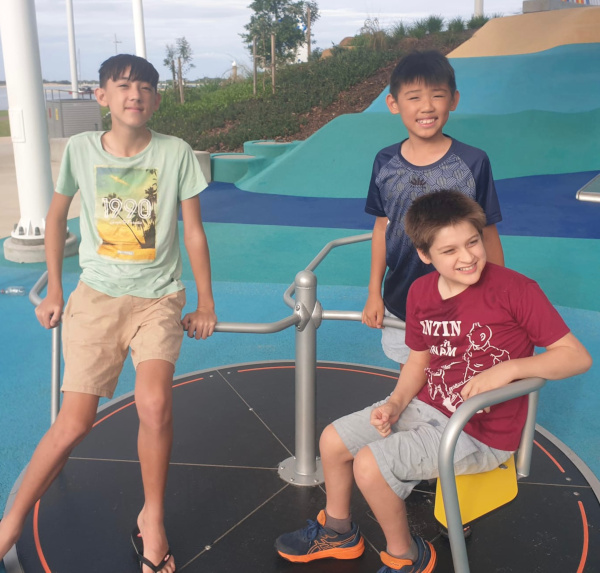
Tim can walk but only short distances. He is extremely food motivated, in such a strong way that we need gates to our kitchen so he can’t access the fridge and pantry. He doesn’t know when he’s full and will eat till he vomits. With all of these challenges, it’s hard for Tim to participate in everyday life with his siblings or peers without adequate support.
How has the diagnosis impacted your family dynamics and daily routines?
My oldest son, Josh, 15, has had to step up and be responsible and mature far beyond his years. He is Tim’s other carer besides us. His little sister, Lilli, 9, also helps take care of her big brother. They’ve learnt how to stay calm during seizures, how to administer medication, how to change nappies, how to dress him, how to prepare his food and so on.
They are becoming such compassionate and kind people.
We try our best to spend dedicated time with each child (including Tim) to stay present and involved with them. We don’t want them to think that our lives revolve around Tim and his needs. We still go out to eat, attend church each Sunday, go on hikes or bike rides. We just make adjustments so Tim can participate, for example, we might be able to only do a 2.5km hike and we would use a bike trailer for Tim if we go on a family bike ride.
He requires 24/7 care so we are constantly on alert even at home about where he is and what he’s doing. Since Tim cannot speak, if we call his name, he can’t answer us and also he wouldn’t be able to call us if he needed to. So, one of us is always required to be with him. He loves to escape out the front door, so it needs to be dead locked at all times. There have been a few heart stopping moments when we’ve realised we forgot to do so and we’ve had him returned to us by our neighbours!
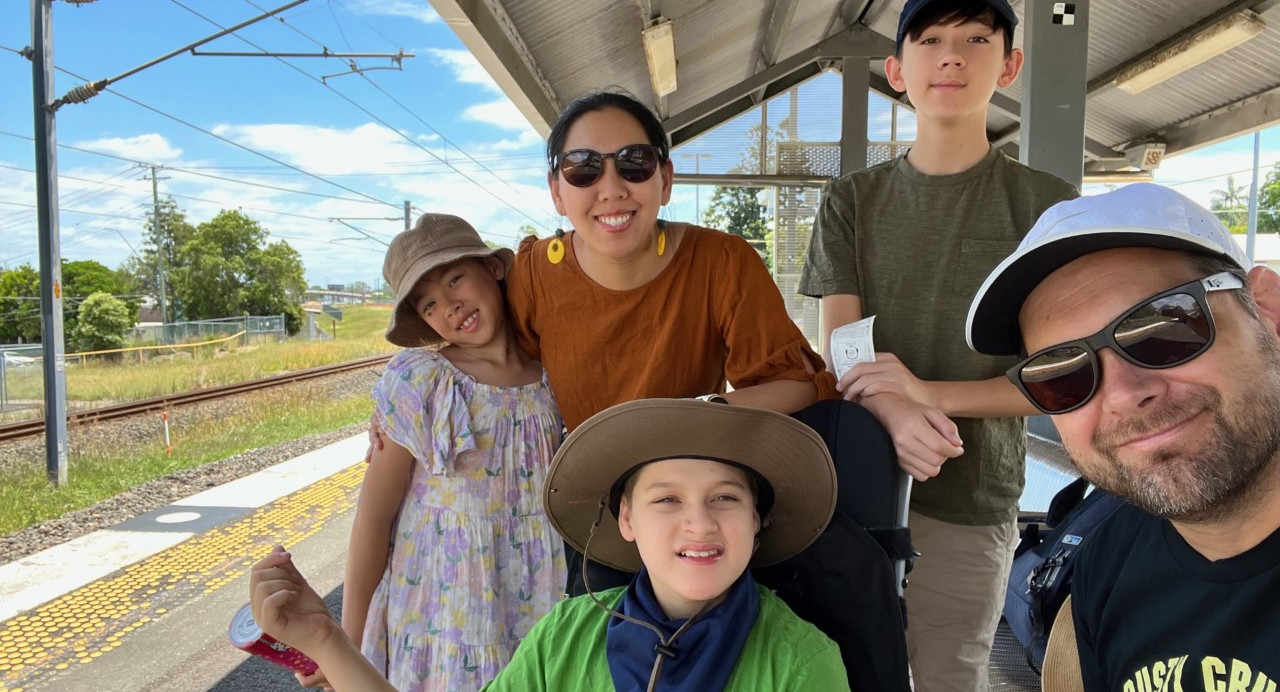

It’s important to have a good community around you. Tim’s sleep challenges mean we are constantly sleep deprived but my husband and I are a great team and the one with more energy will always support the one with less.
What kinds of treatments, therapies, or interventions has Tim been receiving and how have they helped him?
Tim receives speech therapy, physiotherapy and occupational therapy. When he was young, he attended ECDP (early childhood development program) and then started special school. He transitioned to mainstream school in year two with a 1-on-1 support.
Being able to attend a mainstream school made a huge impact on his development. He received a lot of peer modelling throughout the day, and he loved being able to attend with his little sister. He was well-known and well-liked at his school and it was great for the school community to have him there so disability could be normalised and seen. The school worked hard on changing the meaning of inclusion and how to make adjustments for students like Tim in their classrooms, including learning how to use his alternative communication device with him. He graduated primary school last year and has since returned to special school where he has settled in well. The small class sizes and specialist teaching are benefitting him at this point in his education.
As a parent, what are your primary concerns and hopes for Tim’s future?
There are therapeutic treatments that are currently in clinical trial and many more that are being developed to cure Angelman syndrome. My hope is that one of these treatments would help ease Tim’s challenges so he can participate in the community and contribute to the community one day. I want Tim to be accepted and know that he doesn’t belong in just the disabled community, but he belongs everywhere.
How can those around you offer support?
The best support for us would be for those around us to love Tim and get to know him. Involve him and talk to him directly. If they want to support us as a family, check in with each of us to see how we’re going. Continue inviting us out even if we say no, let us complain sometimes about how tired we are, and there’s always laundry to fold!




